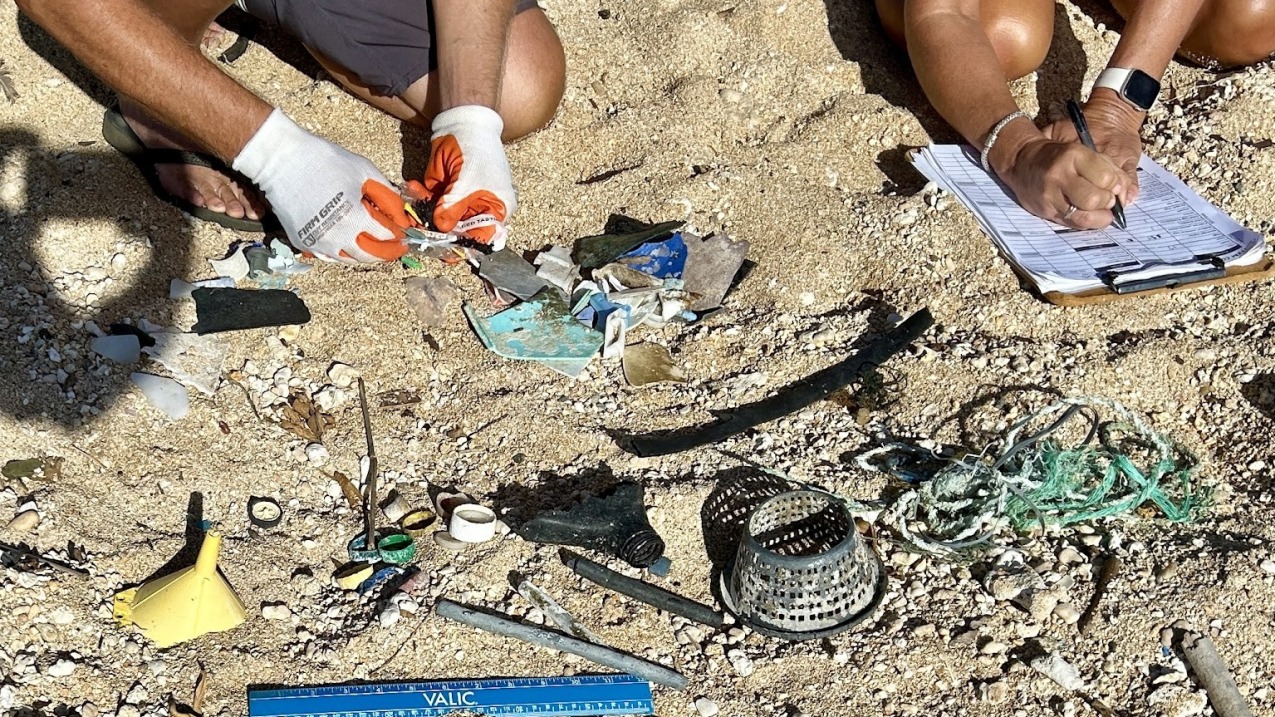Today, the Department of Commerce and NOAA announced an award of more than $3.3 million in funding to support the NOAA Marine Debris Monitoring and Assessment Project Nationwide Survey. This funding will support a one-year, standalone, nationwide marine debris assessment, done in partnership with 1stMission LLC, that aims to broaden the understanding of marine debris, including the types and amounts of debris found on U.S. shorelines. These funds are provided by NOAA’s Climate-Ready Coasts initiative through the Biden-Harris Administration’s Bipartisan Infrastructure Law.
“Marine debris poses significant threats to water quality, marine habitats and the economic prosperity of coastal communities nationwide,” said U.S. Secretary of Commerce Gina Raimondo. “Thanks to President Biden’s Investing in America agenda, this investment of over $3 million will help us understand how marine debris affects our shorelines, expand protections for marine environments and the industries that depend on them, and support a healthier and more prosperous future for coastal communities.”
The nationwide initiative builds on more than a decade of collaborative monitoring efforts with partner agencies, community groups and participants through the Marine Debris Monitoring and Assessment Project, as well as an earlier federal initiative known as the National Marine Debris Monitoring Program. The data collected through this comprehensive monitoring effort will be made freely available to the public.
“Marine debris is a widespread pollution issue affecting the world’s ocean, waterways and coastal areas,” said NOAA Administrator Rick Spinrad, Ph.D. “With the extraordinary support from President Biden’s Bipartisan Infrastructure Law, this survey’s findings will enhance NOAA’s ability to safeguard our nation’s coastal and marine ecosystems, while delivering essential data to researchers, educators, policymakers and local communities.”
Marine debris can injure or kill wildlife, degrade habitats, impact important seafood resources, interfere with navigational safety and negatively affect local economies. Monitoring marine debris in the environment helps researchers understand the amounts, sources and types of debris, as well as where it ends up and if it is changing over time. Monitoring data plays an essential role in identifying key targets for prevention and mitigation efforts, while also providing a measurable framework to assess progress in achieving those goals.
NOAA developed a plan for this nationwide marine debris assessment, as well as a longer-term vision for documenting trends. The survey divides the U.S. coastline, including the continental U.S., Caribbean, Alaska, Pacific Islands and Great Lakes, into multiple regions and incorporates historically unmonitored and remote areas. The survey will establish a scientifically-valid assessment of marine debris and the findings will be used to develop marine debris report cards, providing a tool to communicate and compare regional debris estimates across the nation’s shorelines.
“The opportunity to collect comprehensive data at this scale has been a long-term NOAA vision shared by many of our committed partner organizations and volunteers, and we celebrate this milestone alongside them,” said National Ocean Service Director Nicole LeBoeuf. “This effort will enhance our understanding of marine debris, enabling comparisons across regions and helping to set priorities for prevention and mitigation strategies.”
The Climate-Ready Coasts initiative is focused on creating climate solutions by storing carbon; building resilience to coastal hazards such as extreme weather events, pollution and marine debris; restoring coastal habitats; building the capacity of underserved communities and supporting community-driven restoration. Visit the National Ocean Service Climate Ready Coasts Marine Debris website for detailed information.
For more information about the NOAA Marine Debris Monitoring and Assessment Project Nationwide Survey, visit the NOAA Marine Debris Program’s website.
Climate, weather, and water affect all life on our ocean planet. NOAA’s mission is to understand and predict our changing environment, from the deep sea to outer space, and to manage and conserve America’s coastal and marine resources.
Source link
julie.bedford www.noaa.gov


